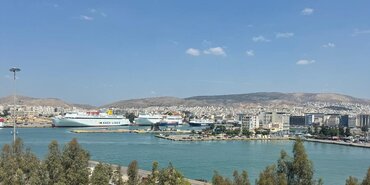The rule of six – facing claims for ships which have left your management
It comes as a surprise to some ship mangers that they could face a claim after a ship has left their management. Under English Law, which applies to many ship management agreements, the standard limitation period is six years. This means that a ship owner has six years to make a claim against the manager, even though the ship may have left the managed fleet.
ITIC sees numerous claims which are made on the manager well after the ships have left their management and some examples are given below. An extreme situation involved a ship manager who, in 2008, managed a ship for eight months. Nearly six years later, in 2014, the managers received a claim for reimbursement for all the off-hire periods during the eight months of management, all the dry dock and repair costs, which were estimated at US$12m, as well as alleged loss of earnings subsequent to the early termination of a profitable time charter, estimated at US$5m. After three years of claim and counter claim, in order to look to contain further costs, settlement negotiations commenced. These led to a mediation at which there was an agreement for the managers to reimburse the owners US$2.5m. This was paid by ITIC, along with the legal costs, which were a further US$500,000.
A further claim concerned a cruise ship, which had suffered a breakdown of both main engines due to contaminated lube oil. The owners submitted their claim for US$ 3million to their hull underwriters, who rejected it on the grounds that the engine breakdown was due to poor maintenance. Even though the engine breakdown had occurred six months after the management agreement had been terminated, it was claimed that they had been negligent. The claim was finally settled out of court for US$ 975,000, which was shared equally between both parties.
Technical management claims are very visible – we all know when a ship has had an incident whether it be a series of engine breakdowns, propeller shaft problems, or equipment failure. Much less visible are accounting issues. They creep up on the manager, often when it’s all too late. A case seen by ITIC involved a manager who had been invoicing the wrong owner for various repairs. The owners receiving the invoices ignored them, intending to contend when chased. The ship that had had the repairs, left the management company and was sold for scrapping. The managers realised their invoicing mistake far too late, the special purpose vehicle owners had gone out of business when the ship was scrapped, leaving the managers to pay the US$250,000 of unpaid invoices.
Common themes every time one of these claims arises are:
- they are a surprise when the claim is made,
- they are extremely time consuming to defend, and
- incur high legal costs in defence.
What’s the solution for ship managers?
1. The first is to always ensure that you continue to be insured for ships leaving your management. Don’t remove them from your ITIC cover – you never know what is going to happen in the next six months, or six years. ITIC offers run-off insurance at a reduced premium.
2. Another solution would be to include a time bar clause in your management agreement. Some of the more recent BIMCO agreements, such as SUPERMAN (Standard Agreement for the Supervision of Vessel Construction), provide for 12 months for the ship owner to bring a claim against the manager.
3. Finally - documents. You need to ensure that you have good records. Litigation against ship managers is often unfair. The ship manager has all the documents and owner’s lawyers can make wide allegations and expect the manager to run around getting everything together. If you have a decent document retrieval system this process will be less painless.
- Date
- 06/10/2020





